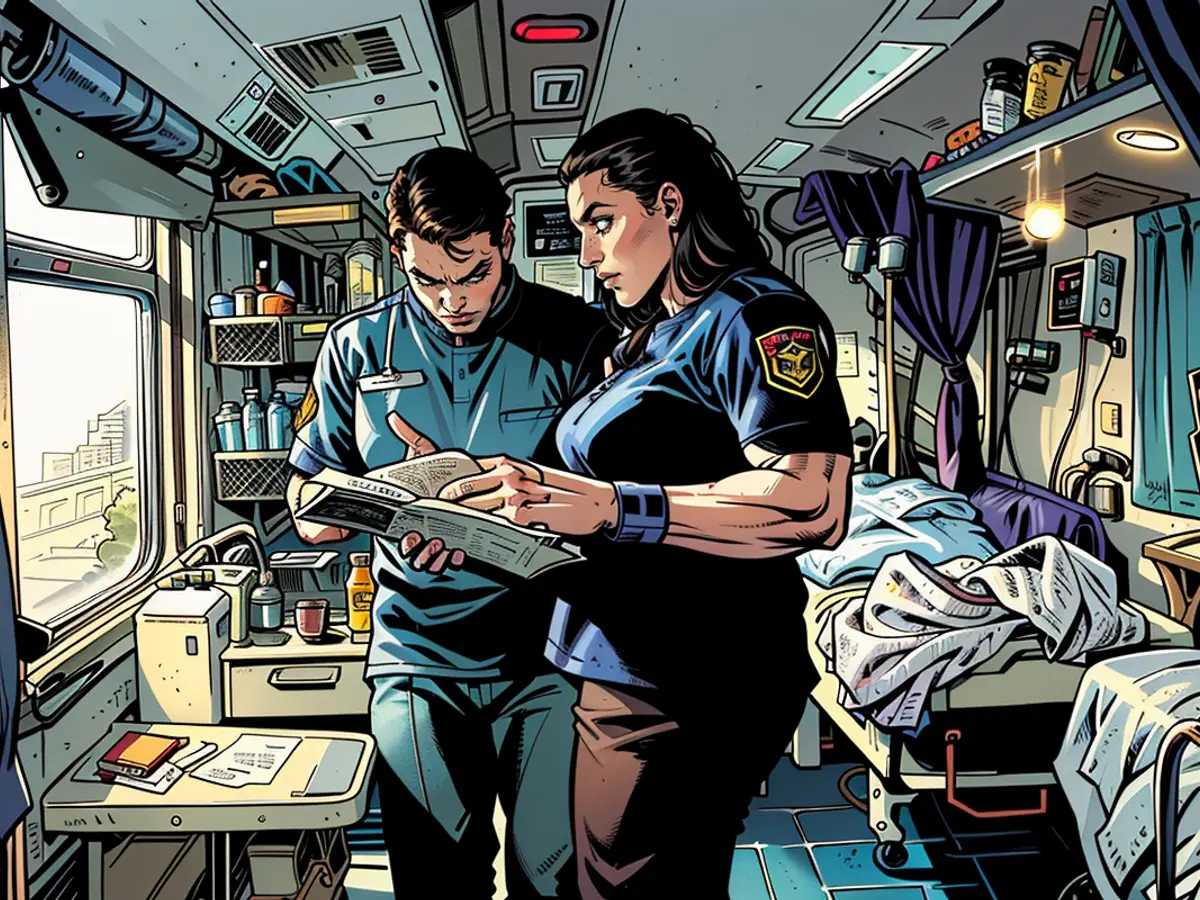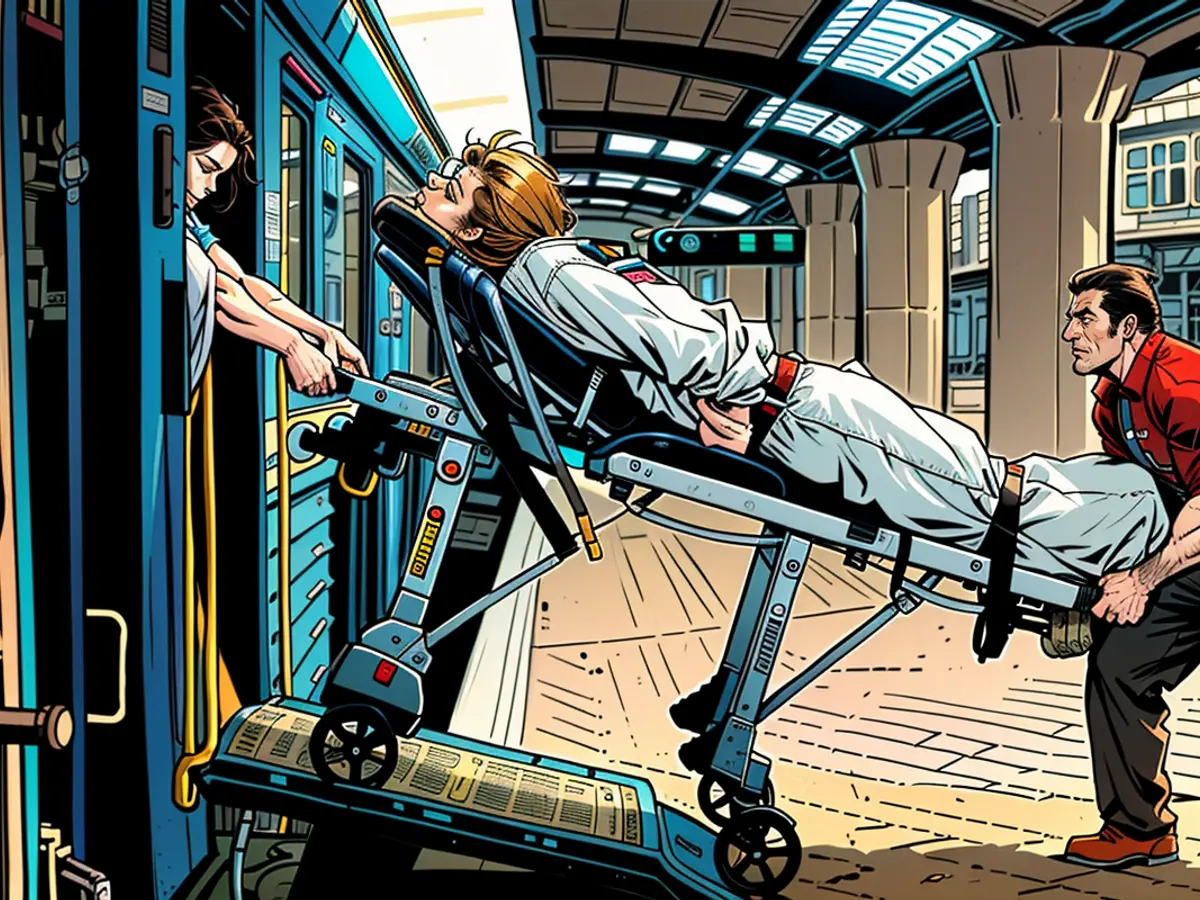Transporting Ukraine's injured soldiers aboard a medical evacuation train designed for emergency situations
A sergeant serving in the Ukrainian armed forces, she is tending to some of its most critically ill patients. It's a demanding job, and she's doing it while on a high-speed train.
CNN was granted exclusive access to a medical evacuation train utilized by the Ukrainian military to transfer wounded soldiers from close to the frontlines to hospitals across the nation. This mobile infirmary – one of several operating throughout the country – has become an essential component of Ukraine's depleted healthcare system, which has been severely impacted by approximately 2.5 years of Russia's brutal war. Due to the clandestine nature of its operations, CNN has chosen not to disclose the train's route or reveal the identities of its staff in full.
Many cities in eastern Ukraine are grappling with a lack of hospital beds to accommodate the nearly constant influx of casualties from the frontlines. However, clearing up space necessitates transferring even the most seriously ill patients, many of whom are unconscious, to remote locations, often hundreds of miles away.
Lengthy ambulance journeys are too risky for individuals in critical condition, and flying a helicopter is too perilous given Russia's air superiority over Ukrainian skies.
The train serves as a lifesaver.
"We can perform almost everything here. It's a fully-operational intensive care unit," said Oleksandr, a captain in the Ukrainian Medical Forces and the train's chief resident, speaking to CNN.
He explained that his field, combat medicine, mainly involves stabilizing and evacuating patients to safety rather than providing treatment. His duties on the train are just one aspect of a larger medical chain that begins when a soldier is wounded.
"The most difficult aspect is evacuating from the frontline," he admitted. "Combat medics who work on the frontlines are dying just like soldiers."
Establishing an ICU in a moving train is an extraordinary undertaking that requires the participation of numerous individuals and poses unique challenges.
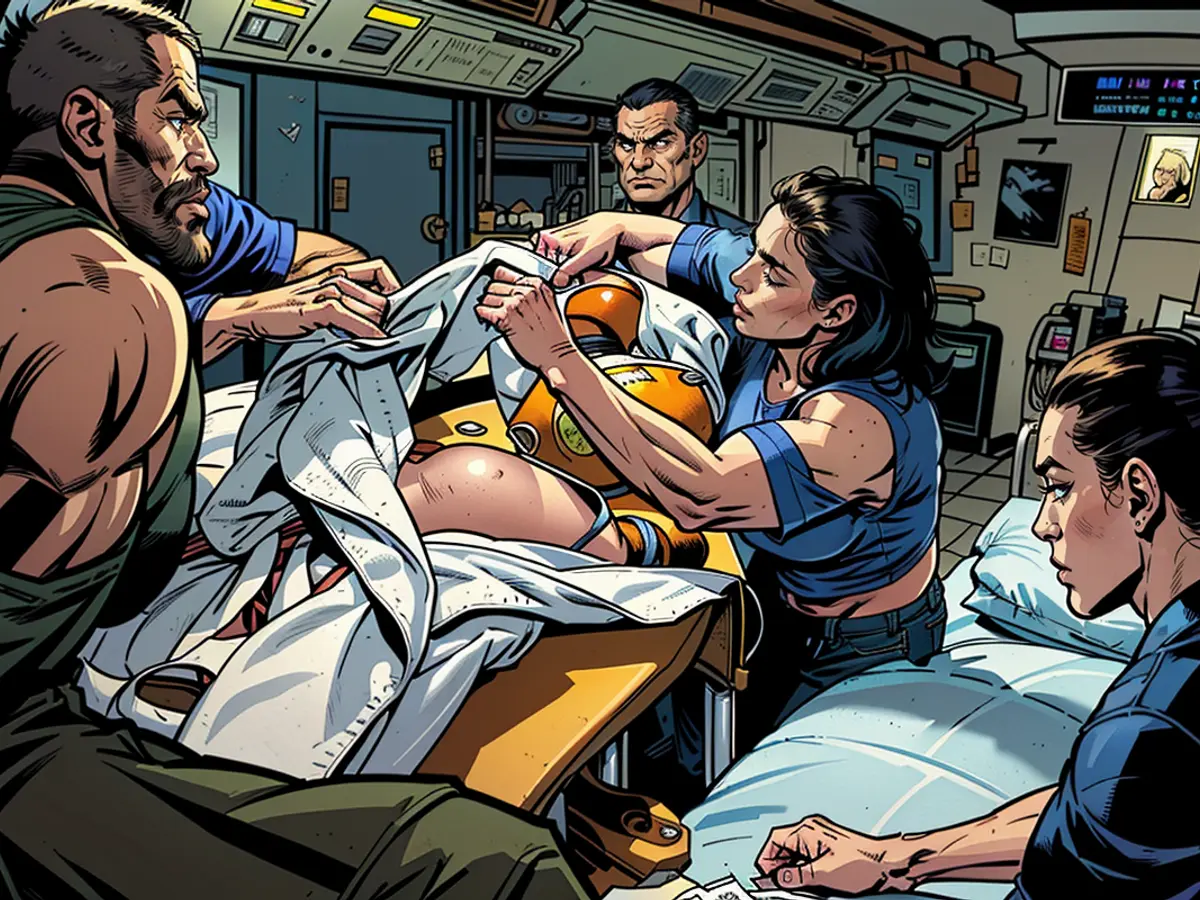
Oleksandr shared that over 90% of his patients have sustained multiple shrapnel wounds. Many have undergone amputations, and several are on ventilators and other life-support machines. All have numbers written on their hands that indicate which section of the lengthy evacuation train they need to board.
"We are extremely limited in our capabilities here… If something occurs, I cannot call an external consultant," he said.
"Minor surgeries to stop bleeding may take place. We cannot carry out abdominal or chest surgeries. We must be cautious when selecting patients," he added.
Yevgeniy, who was severely injured in a drone strike just two days prior to his evacuation, was one of the patients on the ICU train.
He had multiple shrapnel wounds. His head was bandaged, and two large scars on his chest and stomach were covered with fresh dressings. Breathing with the aid of an oxygen nasal cannula, Yevgeniy informed CNN that he considered himself the lucky one, as the sole survivor from the attack near Bakhmut in eastern Ukraine. He expressed his intention to keep his injuries a secret from his family until he had fully recovered.
Ukraine's most crucial train
The railway hospital is a testament to the resourcefulness that the world has come to admire in the early stages of this conflict.
Oleksandr Pertsovskyi, CEO of passenger operations at Ukrainian Railways, informed CNN that Ukraine did not possess any medical railcars when Russia launched its full-scale invasion in February 2022.
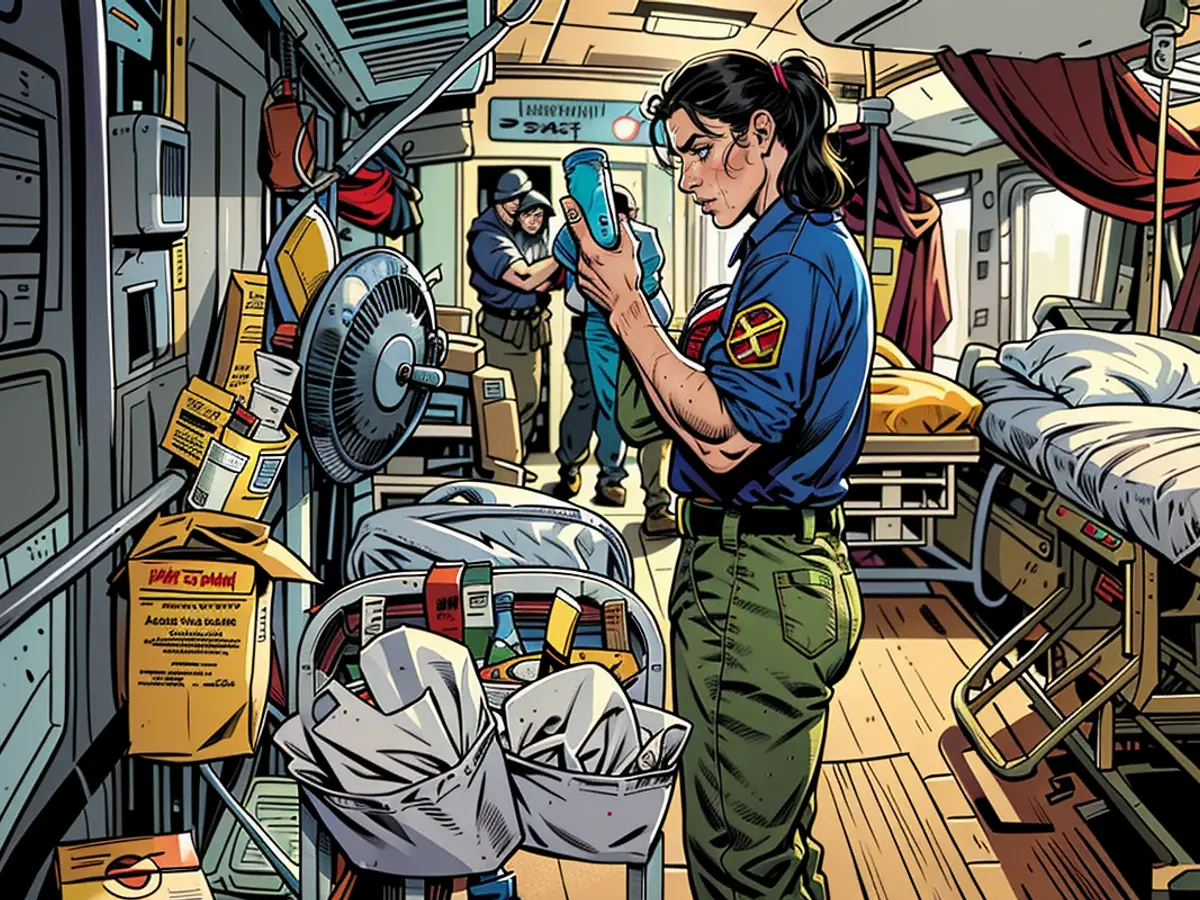
"So what we noticed is that the wounded soldiers were virtually forced through the windows (of regular trains). And we realized that something needed to be done about that... and started retrofitting our regular railcars that in peaceful times would simply carry tourists to the Carpathian Mountains," he explained to CNN following the arrival of one of the medical trains.
To minimize rocking, the vehicle travels at approximately 80 kilometers (50 miles) per hour, which is around half the speed of a typical train. It also holds priority over all other trains, including any special VIP trains carrying foreign dignitaries.
Even so, the ICU unit remains unsteady due to constant shaking. Every piece of equipment, every bed, and every beeping machine must be secured to the floor, and crew members must be extra cautious when tending to patients.
Ambulance trains were first used during the Crimean War in the 1850s, but they have since evolved considerably. Modern Ukrainian versions are equipped with ventilators, life support machines, ultrasound scanners, and portable air conditioners that regulate temperature even on the hottest days.
Each carriage operates independently through generators – an important safety feature in light of the frequent Russian attacks on Ukraine's energy infrastructure, Pertsovskyi noted.
However, it's the small touches that truly make these trains remarkable.
Children's drawings and Ukrainian flags are displayed in every car, providing some comfort to the injured and battered passengers. The blind brackets on every window are shaped like the country's national symbol, the trident, to ensure it remains visible to soldiers lying in their beds.
A dual perspective on deployment
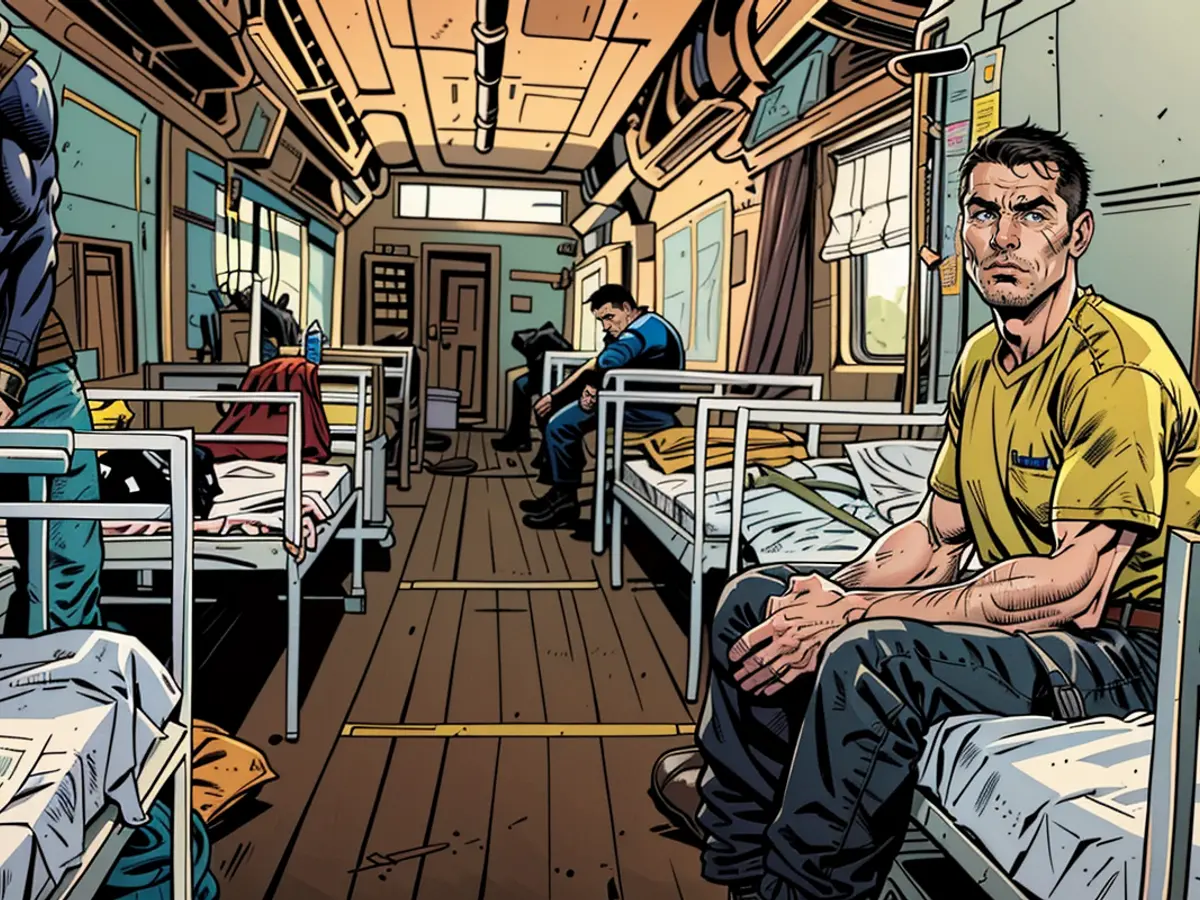
The train offers a brief glimpse into the devastating toll of war. Both experienced veterans and rookie soldiers are journeying together, all bound by injury and pain.
In quiet contemplation on his bed, Oleksandr appeared weary even before the journey began. He revealed to CNN that he had been injured in a Russian drone strike.
"They dropped a grenade. I was stunned. I have shrapnel in my hands, on my shoulders, and on my back," he said, adding that the blast wave had also damaged his hearing.
A forty-five-year-old electrician and father of two, Oleksandr had been mobilized eighteen months prior and was serving as an anti-tank gunner in an infantry battalion in the Donetsk region. During his entire tenure, he had spent just forty-five days away from the frontlines.
"Spirits are high, but everyone is drained," he stated, maintaining an empty gaze as the train continued its journey.
This was the pensive observation from an individual known by the codename "Optimistic."
Ukraine's President Volodymyr Zelensky has openly acknowledged the challenges in reinforcing the military's depleted ranks, leaving the soldiers with no respite.
During a press conference last month, Zelensky indicated that the push to recruit more soldiers was picking up pace. "Some rotations have commenced. I can't exactly call it comprehensive rotations just yet. But it's a step forward, and that's crucial," he mentioned.
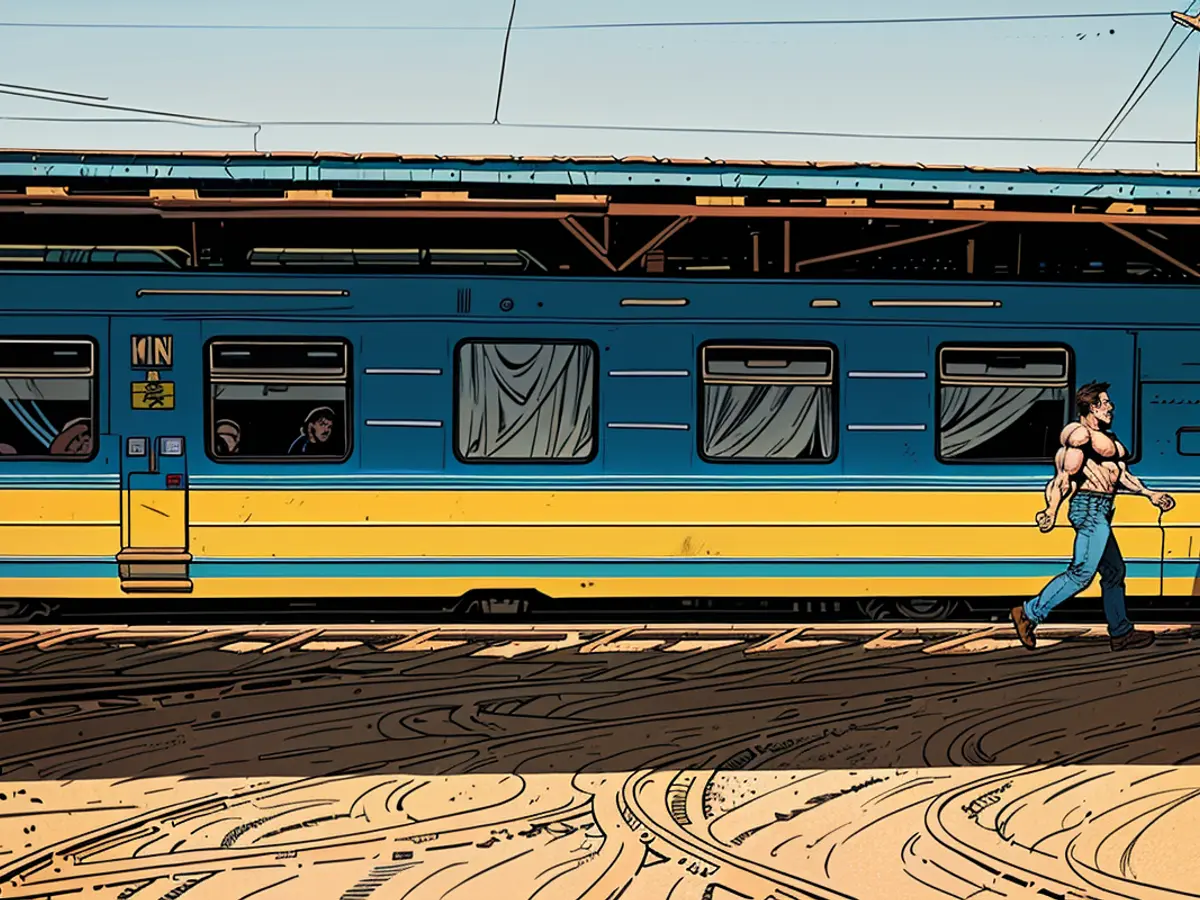
The exhaustion has begun to impact the morale of the frontline soldiers. Last month, CNN reported conversations with numerous Ukrainian commanders and officers who expressed concerns about desertion and insubordination, particularly among novice soldiers.
Situated nearby was Stanislav, a volunteer recruit who enlisted only three months ago. He too had been wounded, a drone strike leaving him with a punctured lung, fractured ribs, and other injuries.
Contrary to Oleksandr, Stanislav displayed a resilient spirit. "After my injury, my determination only grew stronger," he shared with CNN, smiling.
Clad in a sports jersey and shorts, he was unwavering in his belief that Ukraine would emerge victorious, despite the numerical and firepower disadvantage against Russia.
"They rely on numbers, and we rely on quality," he asserted.
The heavy cost of warfare
As the train's journey neared its ninth hour, it finally arrived at a city's railway station under the cover of night. A long line of ambulances was waiting for the patients, marking the end of their train voyage but the beginning of their recovery journey. Some may never fully recover from their wounds.
Olga, a nurse from the ICU, prepared to transfer her patients to the medics on the platform, completing her day's work.
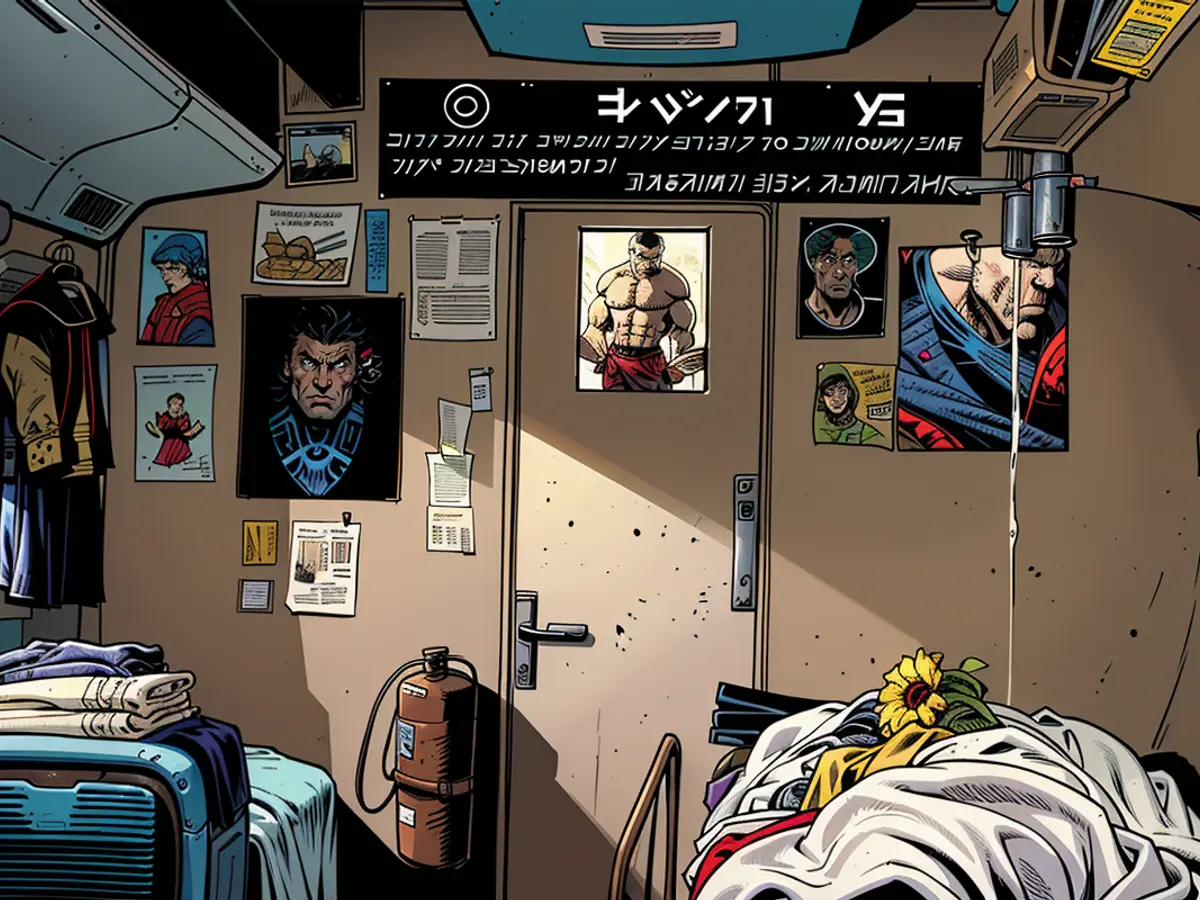
She had joined the military as a civilian nurse in 2015, a year following the conflict between Russian-backed separatists and Ukraine in the eastern regions of the country and the illegal annexation of Crimea by the Kremlin. She enlisted in the military in 2016 and served ever since, taking a brief leave in 2022.
After her duty ended, she told CNN that dealing with critically ill soldiers returning from the frontlines was the most challenging aspect of her job.
"However, we have the chance to offer immediate aid to our defenders 24/7, and that's the most rewarding part," she revealed.
As the ambulances departed and the train left the station, Pertsovskyi, the railway chief, finally heaved a sigh of relief. The medical train is considered a potential target for Moscow, and recent attacks on nearby railway stations and infrastructure have heightened concerns.
Standing on the platform, after observing a train filled with fresh recruits heading in the opposite direction, he mused on the horrors of the conflict.
"In the morning, I see these young men bidding farewell to their fathers, marching towards the battlefield. And then, seeing them return... either unconscious or maimed, it feels like the price of war is unimaginably steep. It's like a never-ending conveyor belt."
CNN's Victoria Butenko and Olha Konovalova contributed to this report.
Despite the challenging circumstances, many cities in Europe, specifically eastern Ukraine, are struggling to provide adequate hospital beds for the constant influx of casualties from the frontlines. Due to the risk associated with lengthy ambulance journeys and the limited capabilities of helicopters given Russia's air superiority, the train serves as a crucial lifeline, transporting critically ill patients across the nation.
